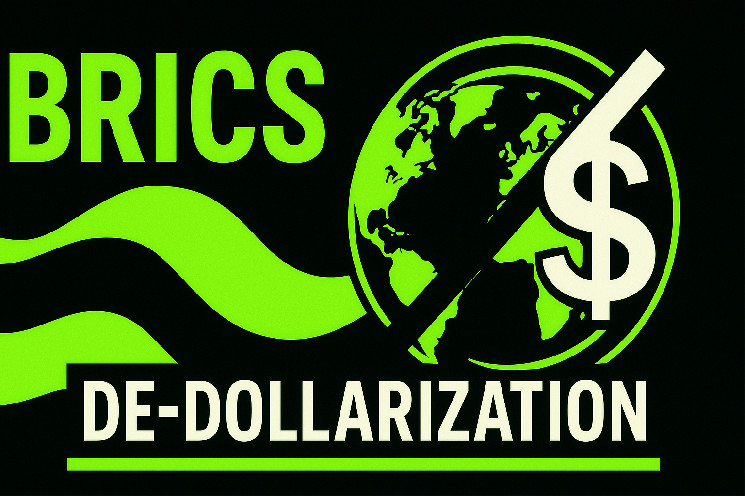
- BRICS nations are advancing digital assets like tokenized gold and crypto to reduce reliance on dollar-based financial systems.
- Concerns over the U.S. dollar’s stability and Fed support are pushing global powers toward alternative digital trade frameworks.
Under the gradually weakening confidence in the U.S. dollar, the BRICS countries are getting closer to the era of a digital financial system. Anton Siluanov, the Russian Minister of Finance, confirmed that the digital financial assets like cryptocurrencies and tokenized gold will be used as the instruments for the consolidation of binding economic relations within the bloc.
Siluanov mentioned his roadmap for a new payment system for the BRICS failed in Kazan in October. He stressed the fact that this new model will be constructed based on digital financial assets, which will be completely new in terms of format and approach. The new model is actually a shift in the strategy of the countries that used to control such systems.
This shift is no longer only a possibility. In 2023, President of Russia Vladimir Putin signed the law about the use of digital assets for international trade. Whereas local payments are still not part of the law, this signal of approval allows for international exchanges across a wide range of digital forms in addition to cryptocurrencies.
BRICS Eyes Financial Revolution With Cross-Border Innovations
Siluanov outlined the strategic direction of upcoming financial reforms, emphasizing ongoing efforts to develop financial innovations within the BRICS framework. He said:
We are considering our various financial innovations on the BRICS floor, including the cross-border payment system that can be based, further to bilateral settlements, on national currencies with consideration of digital technologies and digital financial assets.
More than technological development, it is the process of creating what is known as a crucial buildup of the financial infrastructure. He believes that the construction of the financial system is the most important step, because it will be the basis for trade and the economies of the BRICS. The bloc includes influential countries, such as Russia, China, and India.
Digital assets also represent an important category in the global trade of the time. The BRICS alliance sees its biggest advantage in unknowingly preventing traditional financial institutions, which are often tangled with geopolitical influence and sanctions.
Trouble for the Dollar, Opportunity for Others
In a separate but interconnected development, Deutsche Bank recently issued a note warning about growing instability tied to the U.S. dollar’s dominance. Analysts raised red flags about the Federal Reserve’s dollar swap lines—the emergency tool meant to keep markets liquid in crisis times. Informal talks among European central banks reveal worries that the Fed might not provide support in future market shocks.
These concerns are not happening in a vacuum. Under the Trump administration, geopolitical tensions heightened distrust among U.S. allies. If the Fed’s reliability as a lender of last resort falters, it could trigger a significant reduction in foreign ownership of U.S. assets and accelerate a shift away from the dollar as the world’s go-to reserve currency.
Anatoly Aksakov, Chairman of the Russian State Duma Committee on the Financial Market, didn’t mince words when he assessed the moment. He said:
It’s quite possible that this will be a serious channel to replace fiat currencies in international transactions.
